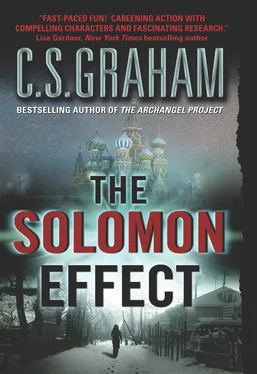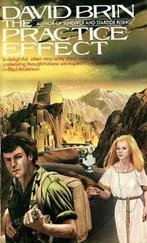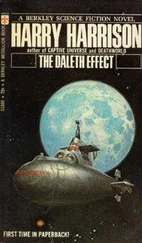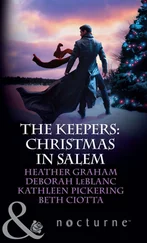“What was he working on?”
“Riehl? He tended to concentrate on the large scale production of high-purity uranium oxide.”
Wolfgang leaned back in his seat and waited while their waitress set their plates on the table before them. “Up until recently, there were basically two schools of historical thought on the subject. Some writers, like Thomas Powers, came to the conclusion that German scientists like Heisenberg and Riehl were deliberately dragging their feet-that they didn’t believe an atomic bomb should ever be built by anyone.”
“Do you think Powers got that right?”
The Texan had ordered bratwurst and potatoes. Picking up his knife and fork, he cut a big chunk of sausage. “It’s certainly true that Heisenberg was no Nazi. He was good friends with Jewish scientists like Einstein and Niels Bohr, and he refused to join the Party, even at first when it looked like Germany had won the war. He always remained firmly against the war with the West, although he didn’t oppose the war with Russia.”
Wolfgang chewed for a moment in silence, then said, “Heisenberg was a complex man. He hated Hitler and the Nazis, but he was a patriot. You have to remember that most of the men who fought for Germany in the War fought for Germany, not for Hitler. Not for the Nazis.”
Tobie picked at her own omelet and salad. “So was he dragging his feet, or not?”
“I honestly don’t know. We know he warned his colleagues that the Americans were working on an atom bomb. If the war hadn’t ended when it did, the Allies would have dropped their two bombs on Berlin and Hamburg, rather than on Hiroshima and Nagasaki. How could any man knowing what his country faced not work to avert that?”
Tobie said, “So what’s the other school of historical thought?”
Wolfgang raised his beer stein and drank deeply, then swiped the back of one meaty hand across his mouth. “In the late nineties, another historian came out with a book arguing that the only reason the Germans failed to develop an atom bomb was because they didn’t understand how it could work. Basically, he said Heisenberg was a bumbling idiot.”
“Was he?”
“Werner Heisenberg? Are you kidding? You’ve heard of the Heisenberg Uncertainty Principle, right? That’s him. The guy won the 1932 Nobel Prize in Physics for his work in quantum mechanics. Yeah, he made some mistakes, but they all did-even Oppenheimer.” Wolfgang leaned forward. “Among other things, the author of this new book claimed the Germans failed to appreciate the potential of plutonium to be a nuclear explosive.”
“You don’t think he got that right?”
“Hardly. We’ve since found a preliminary patent application for a plutonium bomb written in 1941 by Carl Friedrich von Weizsäcker.”
Jax frowned. “Where did that come from?”
“The Russian archives.” Wolfgang laid down his knife and fork. “You’ve heard the expression, “What’s not in the files didn’t happen’?”
“Yes.”
“Well, up until ten years ago, most of the historical research into the German nuclear project was limited to the Uranium Club, mainly because they’re the only ones whose documents we had. But you see, under the Reich Research Council, the Army was also involved in atomic research-as was the Navy and the Air Force. Like I said, it was all very diversified.”
“So what happened to their documents?”
“All the files from the Kaiser Wilhelm Institute for Physics were grabbed by the Soviets when they took over Berlin in April and May of 1945.”
“They took them back to Moscow?”
Wolfgang nodded, his mouth full. “That’s right,” he said, swallowing hard. “They weren’t made accessible to the West until 2002.”
“Have you seen them?” asked Tobie.
“I have.” Wolfgang drained his beer stein and set it down with a thump.
“And?”
“And I believe that a team led by Kurt Diebner actually tested a nuclear device in Germany, in Thuringia, right before the end of the war.”
Tobie dropped her fork, the handle clattering loudly against the side of her plate.
“When?” said Jax. “When was this?”
“On the third of March, 1945.”
Jax quietly ordered three more Beck’s beers, although Tobie had barely touched hers. “What kind of nuclear device?” he asked, his gaze on the Texan’s hairy face.
“It’s difficult to say now, although evidence suggests it was not a standard nuclear weapon powered by nuclear fission.”
“So what was it?”
“Maybe a hybrid-nuclear fusion weapon.”
Tobie picked up her fork. She didn’t have a clue what the difference between nuclear fission and nuclear fusion even was.
Jax said, “Where in Thuringia did this happen?”
“At a place called Ohrdruf. The blast was carried out under the supervision of the SS. Anywhere from several dozen to several hundred prisoners of war and concentration-camp inmates are said to have died in the blast.”
Tobie said, “But surely there would still be evidence of that kind of explosion, even today?”
“There is. Recent test results from the site show elevated levels of radioactive isotopes. The problem is, there’s no way to know for certain if it came from the 1945 blast, or if it’s contamination from the Russian disaster at Chernobyl.”
Jax and Tobie exchanged quick glances. Jax said, “Where does the evidence for this device come from? From the Russian archives, too?”
“A lot of it.” Wolfgang wiped his napkin across his mouth and tucked it beneath the rim of his empty plate. “The thing is, only a small group of scientists was involved, and all relevant documents were immediately classified top secret when they were captured by the Allies.”
When Jax remained silent, the Texan looked from him to Tobie, and gave a wry half smile. “You don’t believe me, do you?”
Jax reached for his new beer. “You have to admit, it is hard to believe.”
“You think I don’t know that? But there’s more. Along with the patent for a plutonium bomb, the Russian archives also contain a report from a Russian spy in Germany. The report was considered significant enough that it was sent on to Stalin. According to their guy, ‘reliable sources’ described two huge explosions in Thuringia on the night of three March.”
“It could have been anything.”
“It could have,” Wolfgang agreed. “Except the East German authorities interviewed a number of eyewitnesses around Ohrdruf in the early 1960s. They reported a bright light followed by a sudden blast of wind. And they all said they suffered from nosebleeds, headaches, and nausea for days afterward.”
Ducking his head, the Texan rummaged around in the tattered knapsack that rested on the bench beside him. “Here. Look at this,” he said, holding out a photocopy of a sketch rendered in blue and red ink.
Peering over Jax’s shoulder, Tobie found herself staring at a drawing of what looked like a big teardrop, or what might almost have been an elongated mechanical bug, with a small head framed by two projecting arms. In the belly of the “bug” was a big blue circle surrounding a smaller red inner circle.
“What is it?” asked Jax, looking up.
“It’s a diagram of a primitive nuclear weapon. It’s a schematic, mind you; not a practical blueprint. But what’s significant is that it was part of a newly discovered report.”
“Written by whom?”
“We don’t know. The title page of the report was missing when it was found in the archives.” Wolfgang pointed one of his thick fingers at the bulging end of the teardrop. “It’s a fission device, based on plutonium. The report even goes on to discuss a theory for a hydrogen bomb.”
Jax looked up. “I thought the Germans didn’t have a working reactor to produce plutonium.”
Читать дальше











